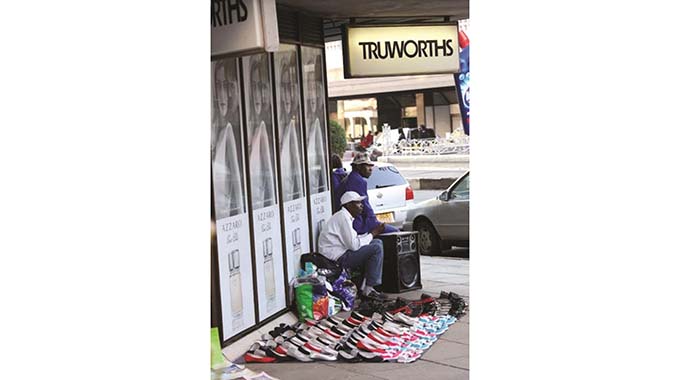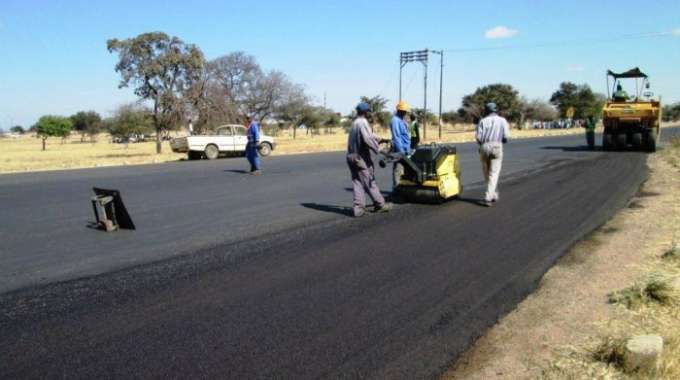Chaos returns to Harare’s streets

Tanaka Mahanya Features Writer
Harare’s streets and pavements have been turned into business areas by vendors and commuter omnibus operators who believe council’s designated areas are not up to scratch.
Second-hand clothes traders have started trooping back to the city’s pavements a year after being pushed out to designated vending areas by the local authority.
In almost all streets in the capital, they tout their products to catch pedestrians’ attention.
At night, along Rezende Street, hustlers disturb people from doing their day-to- day business as their goods occupy more than half of the pavements, targeting pedestrians and commuters on their way from work.
Construction House, along Leopold Takawira Street, is submerged by hawkers selling new and second-hand clothes, cosmetics, bags and shoes.
It is a hectic experience walking through the area, especially during evenings as all vendors want to make a conversation, inviting pedestrians to take a look at their products.
To attract many customers, their products and services are cheaper than those of competitors, shop owners and others operating from kombis.
They block some of the customers making their way into shops, cajoling them to purchase their goods.
Most people are easily manipulated as they are sweet-talked into believing that prices are quite negotiable, to fit their pockets.
In all this, it is the shop owner whose pavement is being manipulated, who suffers the most.
The corner of Mbuya Nehanda and Albion Avenue is no different, as groceries, fresh fruit and vegetable vendors flood the area, targeting people making their way into OK and Food World in the same street.
As they go about their business, some customers are lured as their prices are fairly reasonable as compared to those in supermarkets.
They even have regular customers who used to shop in supermarkets close by, but now have realised they will save a little money if they purchase from vendors.
Street traders now prefer safety of the night as police officers will be done for the day.
In September last year, Harare City Council, together with the Zimbabwe Republic Police (ZRP), removed vendors from the central business district (CBD), under an operation code named Restore Order.
Moreover, human congestion rocks Mupedzanhamo shopping precinct as vendors strive to make ends meet, with most of them occupying the exterior of the mall. Due to the situation at this shopping area, vendors are now back in town, causing mayhem to pedestrians and shop owners.
At the end of the day, it is those who abide by the law who economically suffer at the expense of those who need to make quick money.
Retailers and wholesalers who pay tax to Government do not raise the intended money in their businesses due to competition from vendors.
After all, it is this money that we all need to develop the country.
Again, they pay rentals, yet hawkers come and use their pavements without contributing anything to shop owners, further worsening the situation for legal businesses.
They pocket every cent they get without having to worry about expenses.
To worsen the situation, vendors increase pressure on infrastructure as they go about their business, and in most cases destroying pavements with their stands.
Also, they fail to correctly dispose of their plastics and dirt, which accumulate in drainage systems whenever it rains.
Most of their customers dispose of plastics in streets, mounting pressure on city council workers, who have to come after them to clean up their mess.
Commuter omnibus operators are not spared.
The advent of “mushikashika” has largely affected their business and the number of commuters they ferry on a daily basis.
Along Nelson Mandela Avenue, touts operate their small businesses, touting for commuters.
Kombi operators who pay the council to load at designated ranks have their customers hijacked by mushikashika operators, who negotiate cheaper fares with passengers.
At the end of the day, it is the nation that suffers at the expense of those who engage in illegal activities.
Harare has become an unjust city, where those who abide by the law are trampled upon.
All relevant stakeholders should unite and clear the city before the situation gets out of hand.










Comments